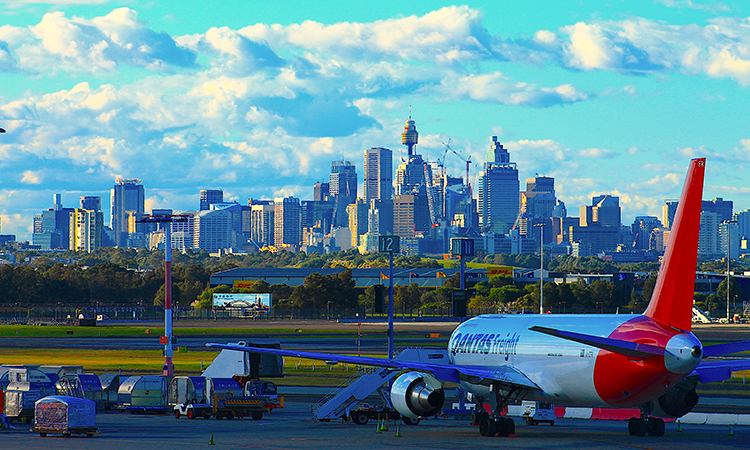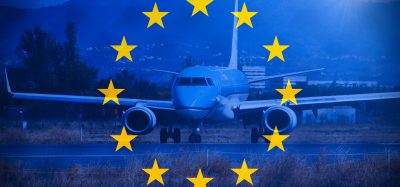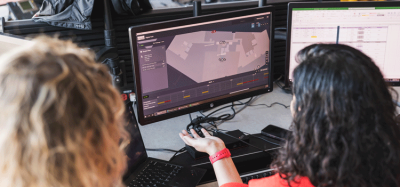$1.2 billion aviation and tourism support package announced by Australian government
- Like
- Digg
- Del
- Tumblr
- VKontakte
- Buffer
- Love This
- Odnoklassniki
- Meneame
- Blogger
- Amazon
- Yahoo Mail
- Gmail
- AOL
- Newsvine
- HackerNews
- Evernote
- MySpace
- Mail.ru
- Viadeo
- Line
- Comments
- Yummly
- SMS
- Viber
- Telegram
- Subscribe
- Skype
- Facebook Messenger
- Kakao
- LiveJournal
- Yammer
- Edgar
- Fintel
- Mix
- Instapaper
- Copy Link
Posted: 11 March 2021 | International Airport Review | No comments yet
The package includes a range of new measures for the Australian aviation and tourism sectors, including half-price airfares and an aviation workforce support programme.


The Australian government has announced a new $1.2 billion support package for the aviation and tourism sectors in order to support the industries’ recovery from the COVID-19 pandemic.
The Australian Prime Minister, Scott Morrison, said that, while Australia’s economy had recovered 85 per cent of its fall from COVID-19, the next step in the government’s National Economic Recovery Plan would target the businesses, workers and regions that were still struggling.
Morrison has said the package’s mix of half-price airline tickets, cheap loans for businesses and direct support to keep planes in the air, and airline workers in their jobs, would be a bridge to a more normal way of life for Australians.
“This is our ticket to recovery – 800,000 half-price airfares to get Australians travelling and supporting tourism operators, businesses, travel agents and airlines who continue to do it tough through COVID-19, while our international borders remain closed,” Morrison said.
He added: “This package will take more tourists to our hotels and cafes, taking tours and exploring our backyard. That means more jobs and investment for the tourism and aviation sectors as Australia heads towards winning our fight against COVID-19 and the restrictions that have hurt so many businesses.”
“Our tourism businesses don’t want to rely on government support forever. They want their tourists back. This package, combined with our vaccine roll-out which is gathering pace, is part of our National Economic Recovery Plan and the bridge that will help get them back to normal trading,” Morrison concluded.
The Deputy Prime Minister and Minister for Infrastructure, Transport and Regional Development, Michael McCormack, said that the measures would work hand-in-hand to boost interstate tourism and aviation in the key regions that were significantly impacted by the loss of tourists.
McCormack explained: “The new Tourism Aviation Network Support (TANS) Program will give Australians clear incentives to travel to key domestic tourism areas. Discounts will be offered on tens of thousands of fares per week across an initial 13 key tourism regions. We’re working with airlines to increase the number of flights to these tourism areas – giving travellers the flexibility needed when organising dream holidays to destinations such as Tropical North Queensland and Kangaroo Island. In a big win for local communities, especially in regional Australia, we will continue to financially support flights which are so key to health services, employment opportunities and social activities. We’re also backing the workforces of our international airlines and the teams and infrastructure they need so that, when tourism takes off again and our borders reopen, our airlines are ready to go.”
Other new measures in the support package include:
- New International Aviation Support to help Australia’s international passenger airlines maintain more than 8,000 core international aviation jobs
- Support for regular passenger airports to meet their domestic security screening costs
- A new Aviation Services Assistance Support Program to help ground-handling companies meet the costs of mandatory training, certification and accreditation to ensure they maintain their workforces so that they can stand them back up when the market expands again
- The reinstatement of domestic aviation security screening cost rebates for more than 50 regular passenger airports.
The Australian Airports Association (AAA) has said that the Australian government’s new aviation and tourism support package will provide a confidence boost to travellers and much-needed support to the aviation sector.
AAA’s Chief Executive, James Goodwin, said that the new funding initiatives would encourage more Australians to start booking flights and travel to a range of tourism destinations across the nation.
“The time to start planning a holiday is now,” Goodwin said. “Anything that can fill seats and put more aircraft in the sky is a good thing and will have flow-on effects for the airport sector. It’s been just over a year since COVID-19 hit and, during this time, all airports have been doing it extremely tough. They’ve been in major need of support and are grateful that the federal government has listened to their calls with this new package.”
He continued: “Once the half-price airfares go on sale on 1 April 2021, the first phase of the government’s vaccination programme should be complete, which means that there should be no reason for states and territories to close their borders. In order for this support package to work, the premiers must agree to put an end to these knee-jerk reactions which have resulted in major setbacks for our sector’s recovery.”
“The government has highlighted that international travel will be back on the cards from October 2021. It’s crucial for the government to start working with the industry on a plan to reopen the border so that we can be ready to go. Domestic travel cannot take the place of international tourism. The best assistance that the government can provide to the sector is to get the international border open as quickly as possible,” Goodwin explained.
Goodwin said that the package would provide significant relief for airports in meeting the costs of government-mandated security screening of passengers and freight.
“We’re confident that half-price airfares to select tourism destinations will result in a major increase of passengers to smaller regional airports, such as Burnie, Merimbula and Kangaroo Island, while also benefitting the major airports which service the regional routes,” Goodwin said.
He added: “Airports have done it tough, but the workers have done it tougher, which is why the new ‘Services Accreditation Support Program’ will be crucial in ensuring that thousands of staff, including ground handlers, maintain their mandatory training, certification and accreditation so that they’re ready to stand back up when the demand returns.”
“Support to help to cover the costs of international security screening is absent in this package, with airports expected to foot a bill of $172 million over the next 12 months to cover the shortfall. Airports are hopeful that the government will reconsider this support measure in May’s Federal Budget,” Goodwin concluded.
Related topics
COVID-19, Economy, Funding and finance, Passenger volumes, Regulation and Legislation, Tourism, Workforce
Related organisations
Australian Government, The Australian Airports Association (AAA)


















